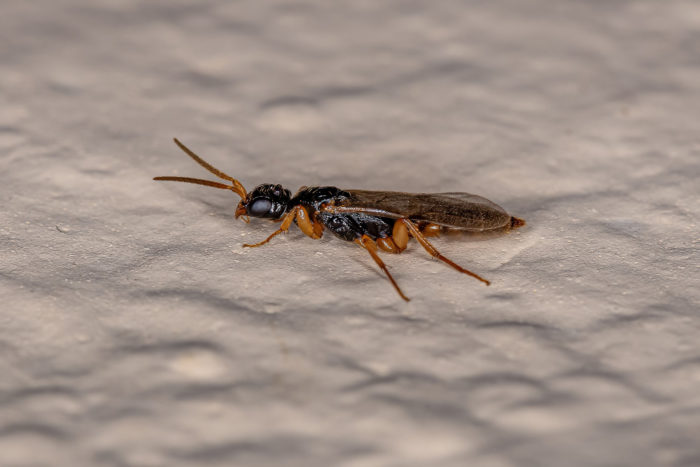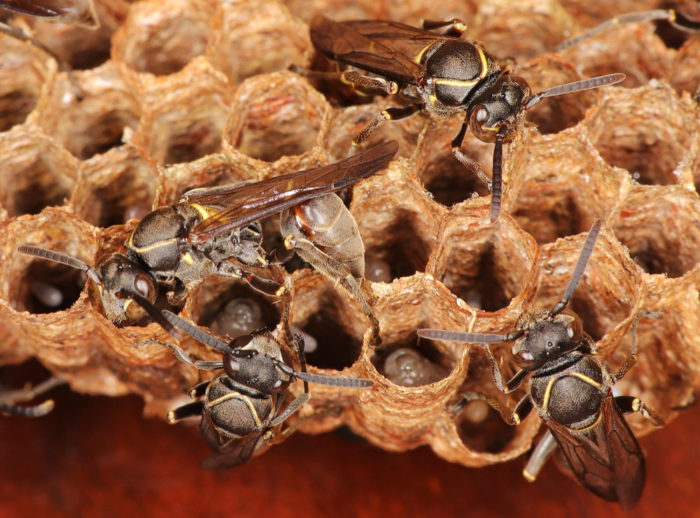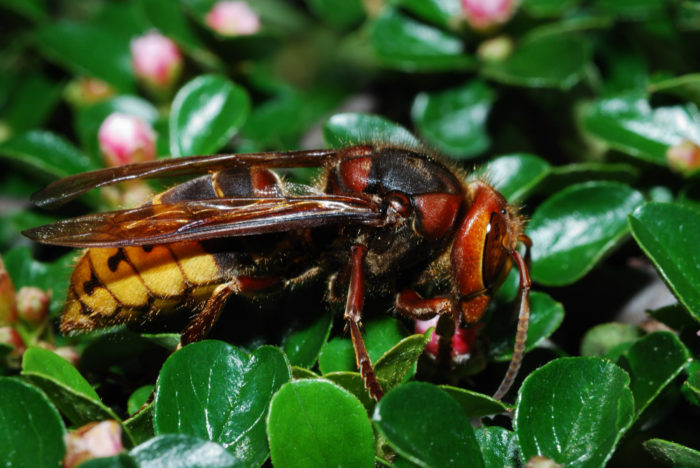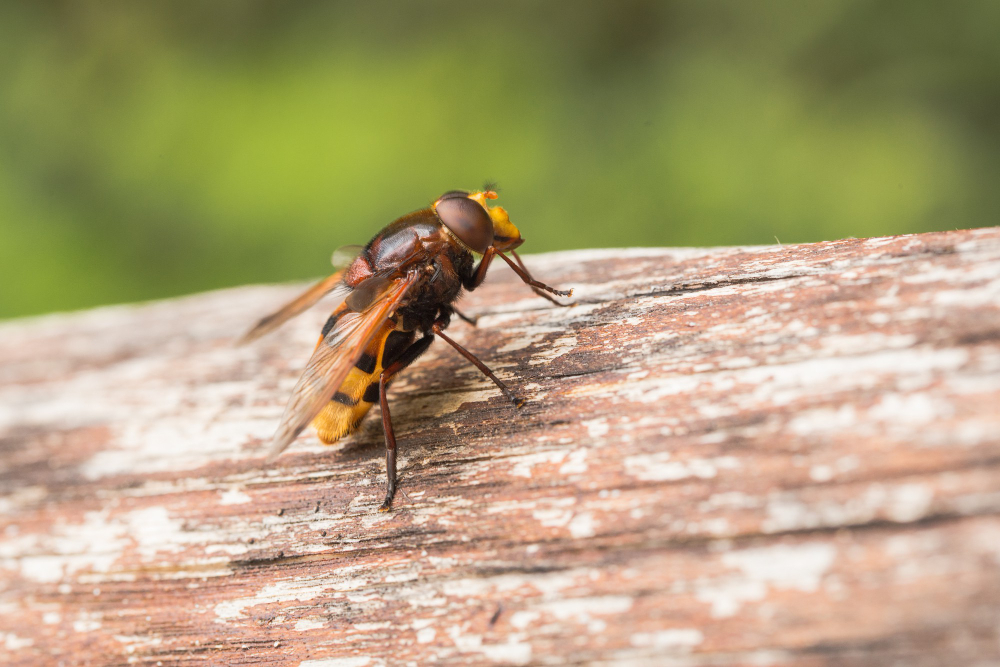From a young age, most kids are instructed to avoid contact with hornets or wasps. Well, indeed, it’s the best guidance for some naughty kids.
However, this warning that these stinging garden bugs can be dangerous is generally a defensive move of wasps rather than a dangerous one. Wasps’ attacks are somewhat rare if wasps are left undisturbed.
Regardless of the fact that they all are capable of stinging humans, honey bees, wasps, and hornets are pretty much different from one another.
This short yet detailed article gives you much information about the difference between wasp and hornet size and behavior and whether our caution is legitimized or not.
Wasps
What do wasps look like?
Wasps range in size from a half-inch to an inch long. Although, yellow jacket types of wasps are often shorter than paper wasps.

Wasps have 2 separate pairs of wings and 6 legs in total. Also, most wasps have a thin or pinched waist and are black in color or have different white, orange, or yellow markings. Unlike honey bees, they don’t have a lot of hair.
Wasps have five eyes. They have two compound eyes and three basic eyes. Their compound eyes have a low resolution; however, they provide a brilliant range of vision, and they are exceptionally intense at detecting external movements.
What are the most widely recognized wasp species?
Paper wasps and yellow jacket wasps are the most widely recognized species of wasps, found in the backyard or lawn of our homes all over the warmer seasons.
Where can you find wasps?
Wasps like to construct their nests in spots like drains, bushes, branches, and along the wall, while yellow jacket wasps tend to often build their nests in the ground.
Additionally, wasps are hunters, so they like meat. A lot number of times, individuals get stung by wasps due to the fact that yellow jacket wasps are buzzing around to their food when they’re eating outside.
How do Wasp’s nest?
Wasps make their nests from papery material like wood fibers. There are two kinds of the group within the wasp colony and they are distinguished in the view of their nesting preferences and areas.

A few solitary wasps prefer to build their nest underground and some create their nest in sheltered
places, for example, over roofs and ceilings.
The location of the social wasp nests relies upon the species, yet they typically lay their nest in pits of soil, tree bark, hanging leaves, branches, or roof of houses or cracks in the walls.
Can wasps hurt you?
Indeed, wasps can hurt you. Wasps don’t lose their stinger when they attack humans, so they generally have no issue stinging a couple of times. When threatened or left in danger, paper wasps will sting immediately and can sting you multiple times.
Individuals will generally get stung when they either get too close to a wasp’s nest or simply end up stumbling across a wasp.
If a wasp is close or sitting on you, and if you panic and attempt to brush it away, it will interpret that as an aggressive action. However, if you gently swash a wasp away from you and walk away, it will let you be and leave you alone.
Like honey bees, if you’re allergic to wasp venom, getting stung by a wasp can lead to a serious allergic response.
Hornets
Hornets tend to be the biggest among the stinging garden bugs colony.
What are the most well-known hornet species?
The European hornet, which is normally known as the brown-colored hornet or giant hornet, is the primary kind of hornet being found. However, the bald-headed hornet is also pretty common.
What do hornets look like?
Giant hornets can be over 1.6 inches long, with queen hornets as huge as 2 inches in length. Hornets have six legs and two pairs of wings.

Similar to wasps, hornets typically have five, not two eyes. The typical arrangement is somewhat like big pair of compound eyes, with a little triangle of simple eyes between them.
European hornets are large and reddish-brown in color with yellow stripes on their abdomen. Bald-faced hornets, on the other hand, are generally black in color with a white pattern all over their face, giving them a bald look.
How do Hornets build a nest?
Hornets make their nests from wood pulp that usually hangs with tree limbs. Like wasps, hornet homes are paper-like and abandoned throughout the wintertime of the year, with just the young queens and their eggs surviving by living under tree barks or roofs.
When spring comes around, the queen wasp will build another nest where her young ones will become workers, and she will take care with the process of reproducing another generation of male and female wasps.
Can hornets hurt you?
Yes – to a great extent. Hornets will immediately sting you when they feel they are in danger. They can likewise sting multiple times.
That can cause some serious pain and injury, and to a great extent, life-threatening issues if you’re sensitive to them.
At the point when somebody is stung multiple times or is highly oversensitive to hornet’s venom, there can be severe allergic reactions that might affect the whole body.
Most people would just feel extreme irritation, redness, and swelling around the site of the sting.
Final Words
If you spot a stinging garden bug, regardless of whether it’s a honey bee, wasp, or hornet, you most likely want to go in another direction. You can attempt to figure out what it was later, rather than being stung multiple times.
You shouldn’t attempt to deal with a wasp or hornet infestation all by yourself, as you might just get stung. Attacking honey bees, wasp, and hornet nests or colonies threaten and anger them as these all are very territorial.
It’s ideal to contact a pest control expert if you have any sort of wasp or hornet infestation in or around your property.
